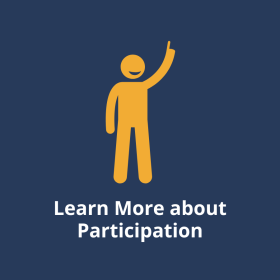UW ADRC scientists want to learn more about the diseases that cause memory loss and dementia. Our center is seeking a variety of people willing to partner with us in Alzheimer's research. We think of study participants as our partners in the effort to find a prevention for neurological conditions that lead to dementia. New opportunities for clinical trials and research studies arise over time, and these may involve different patient groups. This webpage explains how you can learn more about participating in clinical trials or research studies at the ADRC.

Explore the list of enrolling clinical trials and research studies through the pages below.

Each trial and study description includes the contact for the coordinator.

Explore the clinical trial resources at the links below.
- Alzheimers.gov | Alzheimers.gov en español
- FAQs About Clinical Studies [nih.gov] Preguntas frecuentes acerca de los ensayos clínicos [nih.gov]
- Why Should I Participate in a Clinical Trial? [nih.gov]
- ¿Como decidió participar? [nih.gov]
Enrolling Clinical Trials and Research Studies
Clinical Trials: Experimental Medications and Devices
Explore the currently enrolling clinical (drug and device) trials at the UW ADRC for the following medical conditions/populations:
Preclinical Alzheimer's Disease / No Cognitive Concerns

We are currently looking for volunteers to participate in a study run by Dr. Angela Hanson at the University of Washington: The COGIT-2 Trial. COGIT-2 is a research study looking at whether crosswords puzzles training and health education can improve cognitive performance in participants with memory concerns.
Mild Cognitive Impairment/Early Alzheimer’s Disease

We are currently looking for volunteers to participate in a study run by Dr. Angela Hanson at the University of Washington: The COGIT-2 Trial. COGIT-2 is a research study looking at whether crosswords puzzles training and health education can improve cognitive performance in participants with memory concerns.
 This research study looks at the effect of neurostimulation on memory decline in patients with early onset Alzheimer's disease and dementia to help us better understand memory deterioration and how to potentially reduce it. The study will use a technique called transcranial magnetic stimulation. TMS is a non-invasive brain stimulation that uses magnetic fields to stimulate targeted parts of the brain from the outside.
This research study looks at the effect of neurostimulation on memory decline in patients with early onset Alzheimer's disease and dementia to help us better understand memory deterioration and how to potentially reduce it. The study will use a technique called transcranial magnetic stimulation. TMS is a non-invasive brain stimulation that uses magnetic fields to stimulate targeted parts of the brain from the outside.
The Novartis VHB937A12201 study is a Phase 2 clinical trial testing an investigational therapy called VHB937 for people with early to moderate Alzheimer’s disease. Participants receive monthly intravenous infusions of VHB937 or a placebo over approximately 72 weeks. The treatment is designed to target immune processes in the brain that may help slow disease progression. Participation includes monthly infusions, quarterly cognitive and physical assessments, and occasional MRI or PET scans. Those who complete the initial phase may continue into an extension portion of the study.
Moderate to Severe Alzheimer's Disease
No clinical drug trials for Moderate to Severe AD are currently enrolling at the UW ADRC. In the meantime, view studies enrolling at the VA Puget Sound Health Care System.
The listed VA studies are led by UW ADRC-associated researchers.
Dementia with Lewy Bodies

The University of Washington is conducting a study to better understand visual hallucinatory phenomena (VHP) in people with Lewy Body Disorders, including Parkinson’s disease and Dementia with Lewy Bodies. We want to investigate whether virtual reality (VR) devices can be used to assess the tendency of people with these disorders to have VHPs. We hope to develop a way to quantify these experiences more objectively to better guide treatment and to develop a means of treating VHP without medications.
View Flyer for VR study [uw.edu]
Contact: VirtualReality4VH@uw.edu [email]
Frontotemporal Dementia (FTD)
 If you are interested in opportunities for individuals at risk for FTD, learn about the longitudinal research cohort ALLFTD
If you are interested in opportunities for individuals at risk for FTD, learn about the longitudinal research cohort ALLFTD

Research Studies: Observational and Lifestyle Intervention Studies
Explore the currently enrolling research studies (observational and lifestyle intervention) at the UW ADRC:

The UW Alzheimer’s Disease Research Center (ADRC) is part of a nationwide network of research centers funded by the National Institute on Aging. We are exploring innovative approaches to diagnosis, treatment, and disease prevention by partnering with people who have normal memory and thinking and those who have memory concerns or are living with dementia. We are looking for volunteers from a variety of ethnic backgrounds and ages who are willing to participate in research. It is important to study a diverse group of people so that the information we learn will benefit everyone.

ALLFTD is a comprehensive study targeting most varieties of neurodegenerative diseases that cause frontotemporal dementia (FTD). The overall goal of ALLFTD is to prepare for treatment trials by characterizing sporadic and familial cases of FTD and identifying clinical measures and biomarkers for following patients in clinical trials. Eligible populations: frontotemporal dementia (FTD) and individuals with family history of FTD.
 This study at the UW Integrated Brain Imaging Center uses brain imaging to understand the changes in the brain that may be responsible for memory problems in old age and associated disorders. Eligible populations: mild cognitive impairment (MCI) or Alzheimer's disease.
This study at the UW Integrated Brain Imaging Center uses brain imaging to understand the changes in the brain that may be responsible for memory problems in old age and associated disorders. Eligible populations: mild cognitive impairment (MCI) or Alzheimer's disease.

Puede ayudarnos a comprender la experiencia de los adultos mayores latinos/e/a/x/hispanos de habla hispana y sus familias para que podamos mejorar la atención y el apoyo que se les brinda.
Tai chi is an ancient martial art that combines mindful body movement, posture, and breathing to achieve a sense of internal balance, calm, and clarity. We are investigating whether doing tai chi can improve sleep and help the body remove harmful proteins that may be related to Alzheimer’s disease and other brain disorders.
The research involves an intake visit at VA Puget Sound, a brain MRI at the University of Washington (UW), and at-home sleep assessments that are coordinated by Oregon Health and Science University (OHSU). Flyer

You can help us understand the experience of Spanish-speaking Latino/e/a/x/Hispanic older adults and their families so we can improve the care and support provided to them.
 The Lipid MRI Study is enrolling people for a NIH-funded study to test how two simple nutrients, sugar and fat, can affect your memory, brain (via MRI Scan) and blood biomarkers. The Lipid MRI study involves non-invasive MRI imaging to see how a risk gene for Alzheimer’s disease, APOE4, affects brain blood flow after a high fat drink. With this study, we hope to understand what parts of the brain are most affected by a high fat meal. Eligible populations: Normal Cognition, Mild Cognitive Impairment (MCI), and Alzheimer's disease.
The Lipid MRI Study is enrolling people for a NIH-funded study to test how two simple nutrients, sugar and fat, can affect your memory, brain (via MRI Scan) and blood biomarkers. The Lipid MRI study involves non-invasive MRI imaging to see how a risk gene for Alzheimer’s disease, APOE4, affects brain blood flow after a high fat drink. With this study, we hope to understand what parts of the brain are most affected by a high fat meal. Eligible populations: Normal Cognition, Mild Cognitive Impairment (MCI), and Alzheimer's disease.

The purpose of the SPEAC Lab study is to hear about communication between people concerned about or diagnosed with dementia or mild cognitive impairment and their family members and/or friends. Your participation will help healthcare providers support others with communication disorders and the important people in their lives to stay connected through communication. Eligible populations: Mild Cognitive Impairment (MCI), Alzheimer's disease, Frontotemporal Dementia (FTD), Dementia with Lewy Bodies.
Las hiperintensidades de la materia blanca son manchas brillantes que sólo podemos ver cuando tomamos fotografías del cerebro mediante una resonancia magnética. Suelen encontrarse en personas con la enfermedad de Alzheimer y trastornos relacionados. Nuestro estudio está comprometido con el avance de la investigación sobre la enfermedad de Alzheimer mediante el desarrollo de nuevas técnicas de imágenes por resonancia magnética.

Studies for Caregivers / Carepartners

You can help us understand the experience of Spanish-speaking Latino/e/a/x/Hispanic older adults and their families so we can improve the care and support provided to them.

Puede ayudarnos a comprender la experiencia de los adultos mayores latinos/e/a/x/hispanos de habla hispana y sus familias para que podamos mejorar la atención y el apoyo que se les brinda.

The University of Washington SPEAC Lab is inviting the family and friends of people with dementia to answer survey questions about their communication experiences. Your participation will help healthcare providers support others with communication disorders and the important people in their lives to stay connected through communication. Eligible populations: family and friends of people with dementia
Seeking Caregivers for a Research Survey
Are you or someone you know a caregiver for a patient seen at the UW Memory and Brain Wellness Clinic (MBWC)? A graduate student at the University of Washington is conducting research to better understand the Patient Portal needs of caregivers. Caregivers are invited to participate in a short survey, even if they do not currently use UW Medicine’s MyChart Patient Portal.
Caregivers provide essential support in many ways, including personal care, medical assistance, household management, and emotional support. Their perspectives are invaluable in shaping future healthcare tools.
Each trial and study description above includes the coordinator to contact, but if you cannot find the information you need, email uwadrc@uw.edu. Include your full name, phone number, and email along with information about your interests. You can also call 206-616-3973.

Studies Enrolling Spanish Speakers
Oportunidades de Investigación
View studies enrolling at the VA Puget Sound Health Care System
The listed VA studies are led by UW ADRC-associated researchers.

